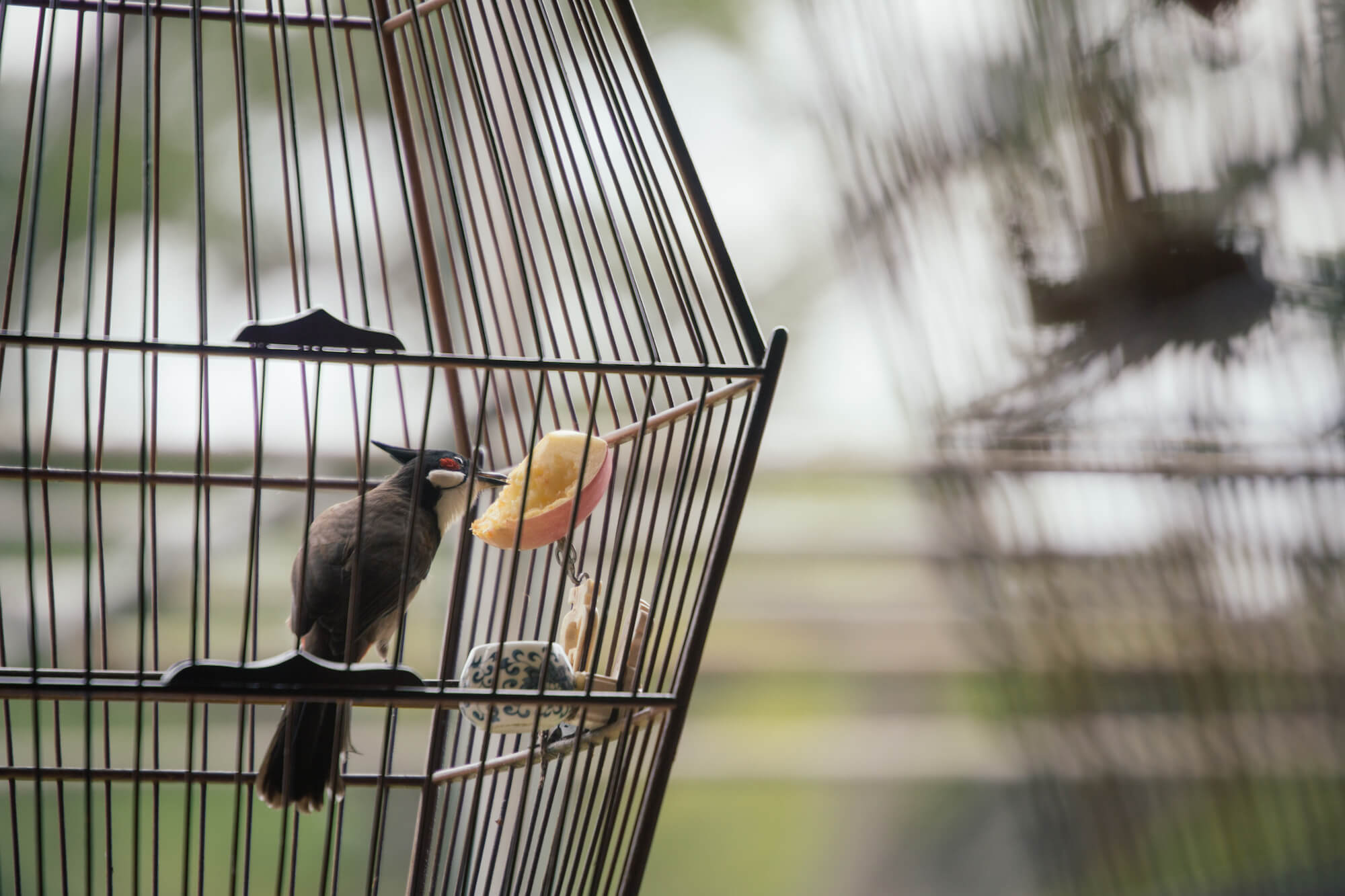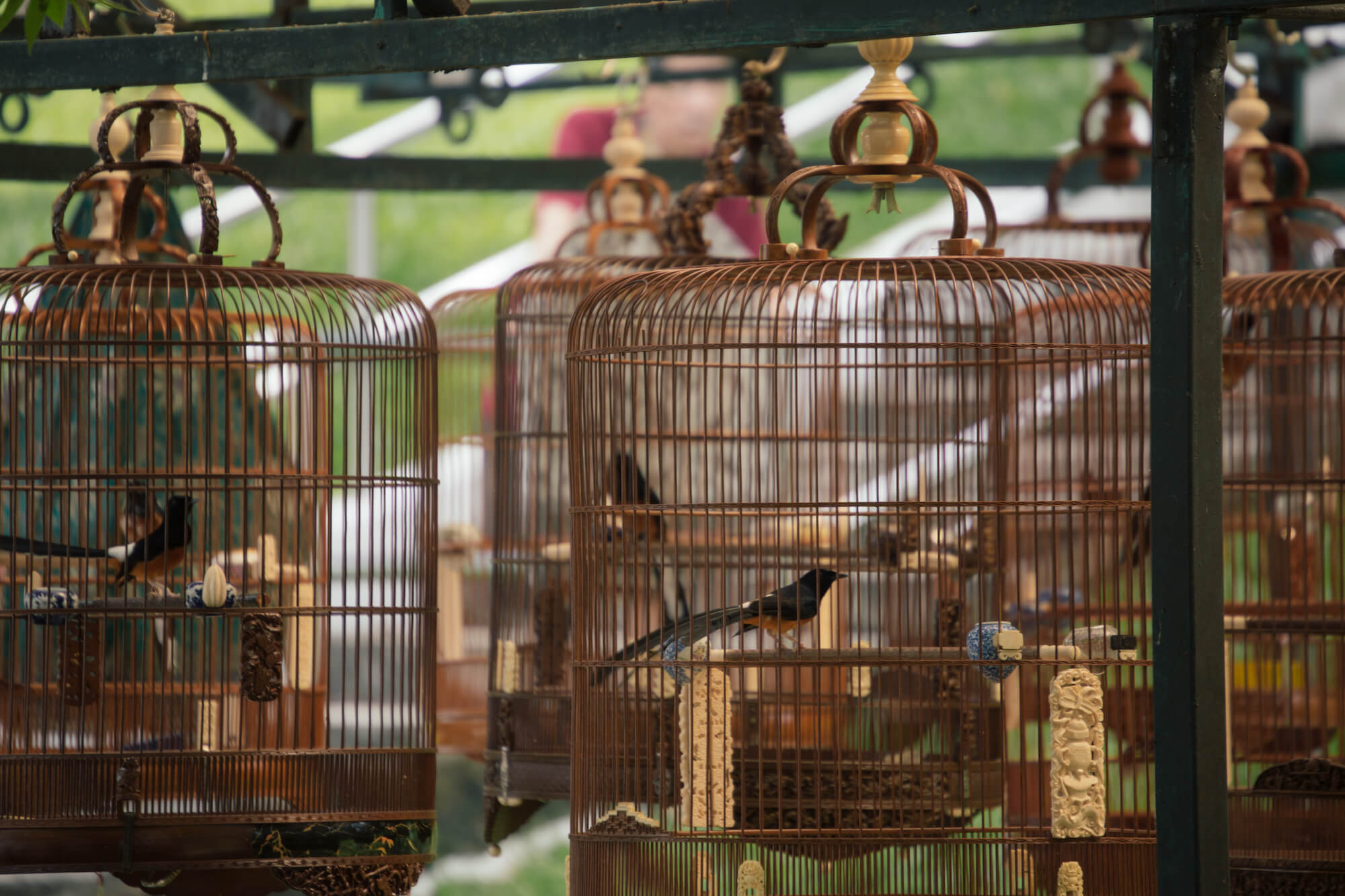Words by Ilyas Sholihyn. Photos by Christopher Sim.
On a recent late December morning, it took hours for the damp dawn air to turn into a crisp heat. It had been briefly drizzling at Kebun Baru Birdsinging Club, but as soon as the sky cleared, the bird cages emerged. Wooden enclosures — beautifully-crafted and adorned with colorful lace — held scores of grey avian inhabitants within.
Men (and it’s largely men) in their middle to late years cooed at their feathered companions, slowly raising the cages onto assigned flagpoles scattered across the grounds. It was a competition day that Sunday and the morning’s contestants were all zebra doves, better known locally as the merbok.

The only thing louder than the birds’ soft cooing calls was the collective din of their human masters, heckling and taking the mickey out of each other underneath a shelter nearby.
There’s a compellingly weathered quality to the men, wizened by the years and effortless in their quips as they tease each other while awaiting the results of the bout. I feel an oddly compelling urge to have kopi o gao (black, extra strong coffee for you non-Singaporeans), light a cigarette, and talk about what is usually referred to as “the good old days” with them.

Some of the regulars have been hanging around the area since the ’70s, and can remember a time when the grounds were still used as a race track for remote-controlled cars.
The open field at Ang Mo Kio Town Garden West was once a gathering place for all manner of hobbyists, but eventually, only the bird uncles remained. What started out as a small, self-funded spot for them to hang out under tarpaulin tents slowly began expanding into what is now the country’s largest bird-singing and display arena.
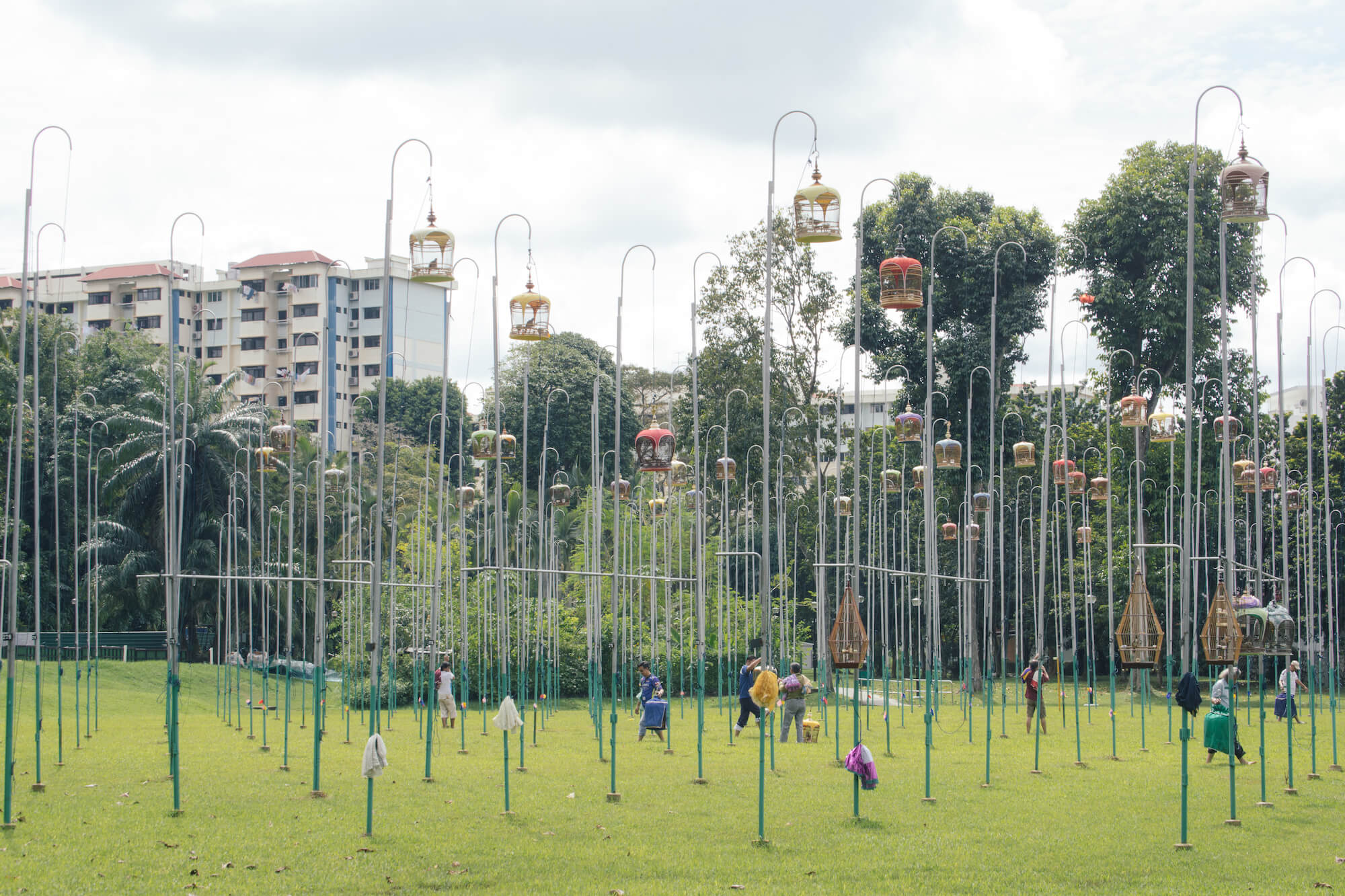
Today, there are more than 400 20-foot-high poles scattered across the space, where birds in gilded cages are hoisted, the better to catch sight of their fellow cooped-up cousins, something that apparently encourages them to sing.
There are benches, metal shelters, a Giant supermarket, a kopitiam, and a huge open-air carpark nearby. All of it feels directly connected in some way to the Kebun Baru Birdsinging Club, which brings tourists and locals alike to the quaint quarter in the Ang Mo Kio every Sunday.
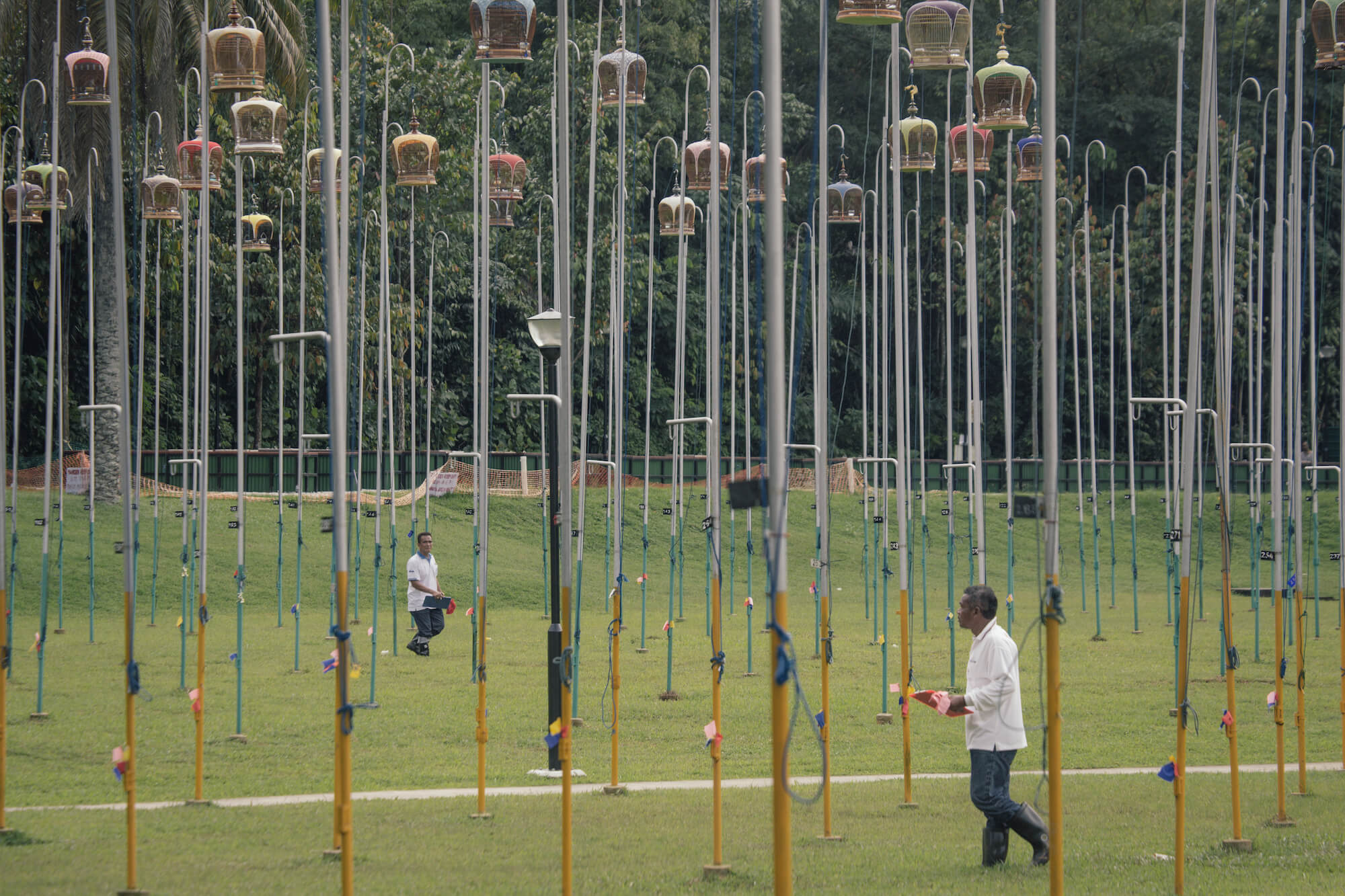
The competitions are usually held once or twice a month. Caged birds are winched up the flagpoles, and professional-looking judges then slowly saunter past, their ears perked up so they can best allocate points according to the birds’ singing ability, musical liveliness, and tonal quality.
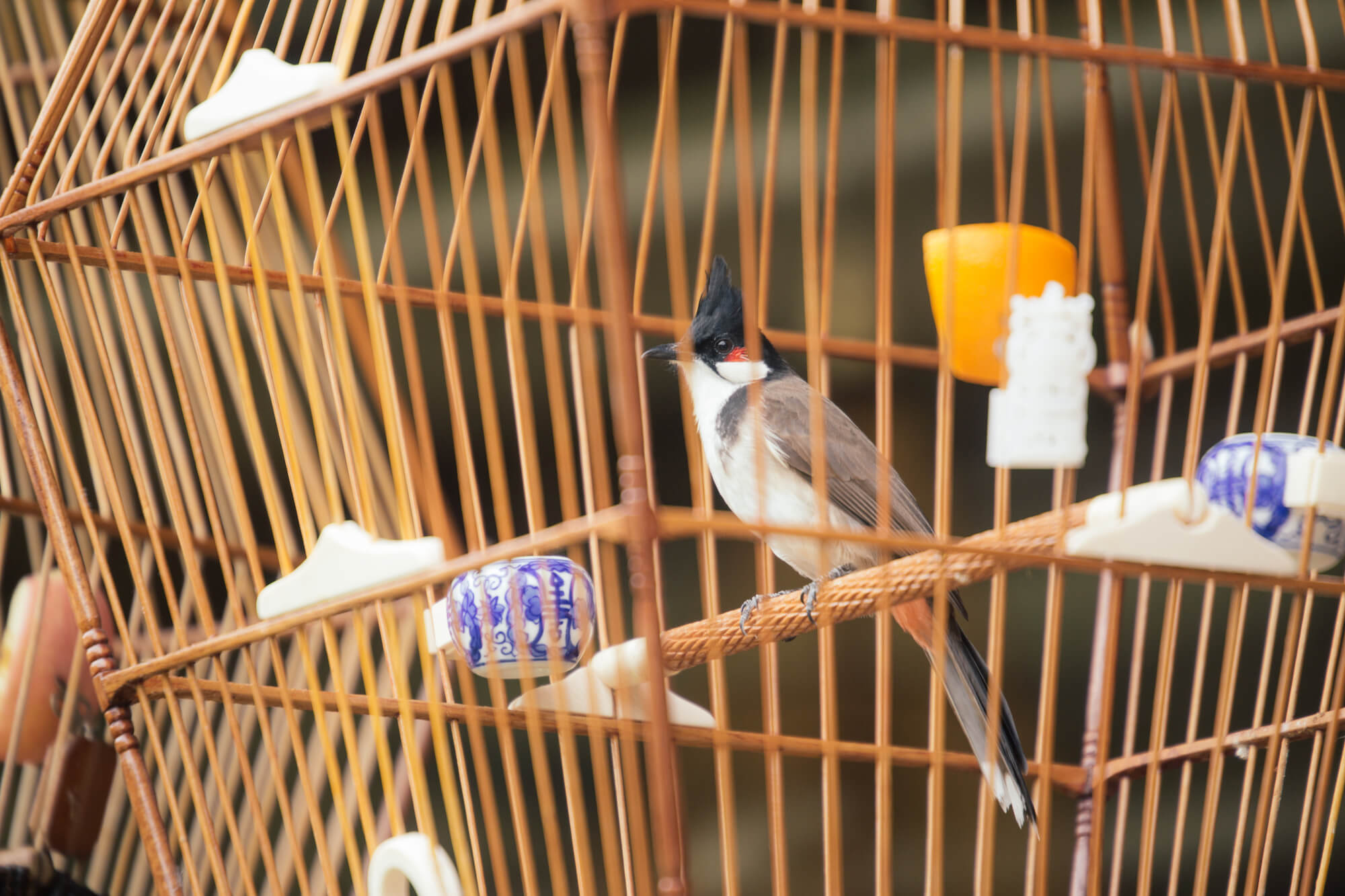
Physically, the birds are judged on the beauty of their plumage, or even the length and movement of their tails. Largely hailing from Southeast Asia, they range from the handsome red-whiskered bulbul to the adorable white-rumped shama to the tiny oriental magpie-robin.
The big competition that day, however, revolved around the zebra dove — a rather dull, dusky creature when compared to its more-colorful relatives. But what the species lacks in looks, it makes up in the dulcet staccato of its calls.
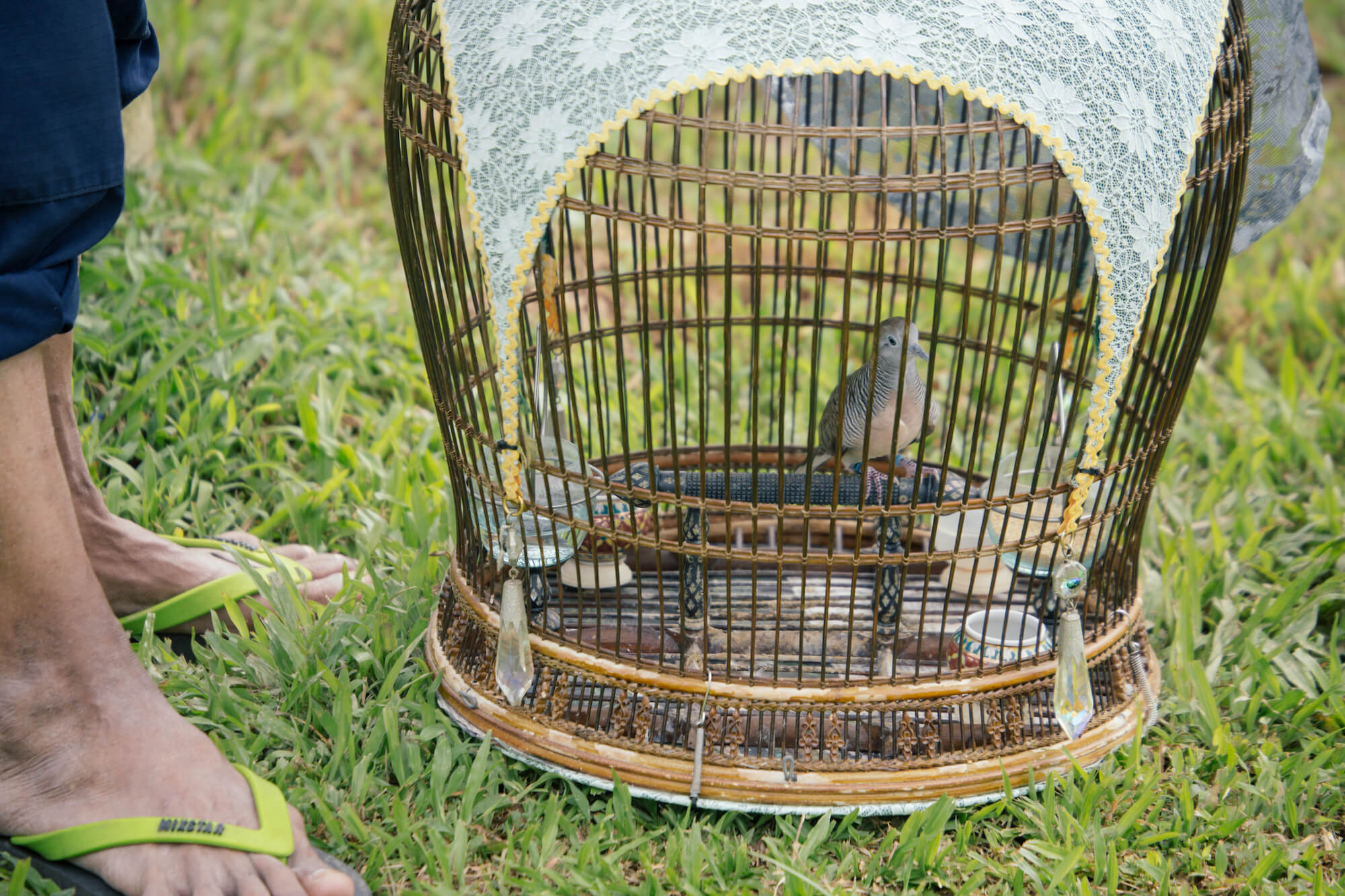
Robin Chua, the aptly-named volunteer of the Kebun Baru Constituency since 1994, explains that everyone’s a winner at the end of the day. The scores of trophies adorning the table mean that everyone generally goes home with an award of some sort. Even if the hobbyists don’t score trophies, they can always find fortune in the lucky draw, where prizes such as hand-made cages and bags of pellets await. Solid investigative journalism reveals said pellets were birdseed.
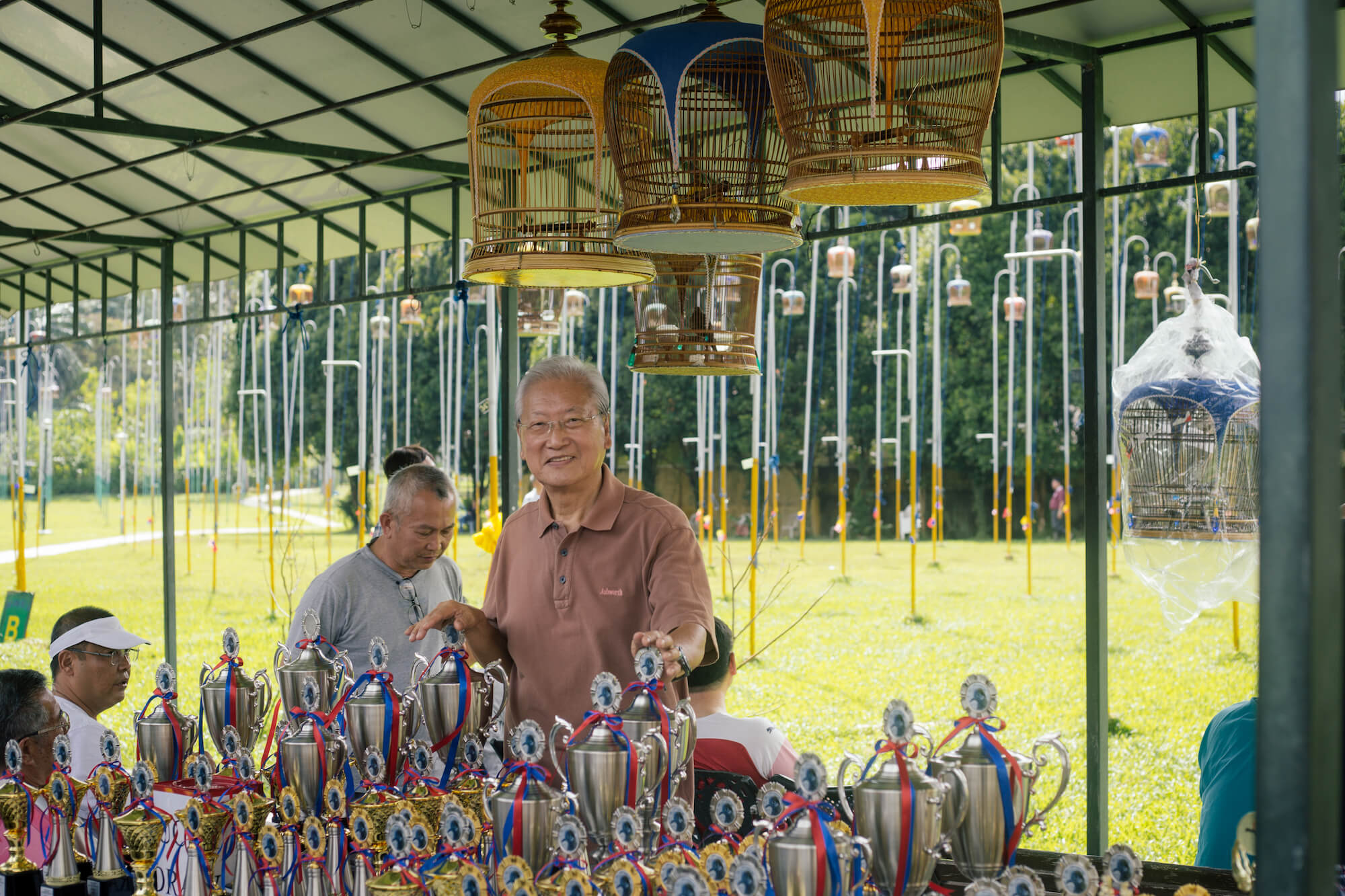
Everyone’s a winner, at least among the owners, but what of the contestants themselves? The ability to figuratively and literally spread their wings is limited by the size of their beautifully crafted cages, while the heights they can reach extends only to the top of their 20-foot poles.
People for the Ethical Treatment of Animals (PETA), unsurprisingly, has publicly attacked the practice, arguing that the lives of caged birds — whether captured in the wild or bred in captivity — are simply horrible.
“Birds in cages crave freedom and companionship and often exhibit aggressive, neurotic, and self-destructive behavior as they languish in cramped cages,” PETA wrote in a dramatically headlined essay called Why the Caged Bird Screams.
“Birds are known for their complex communication techniques, their beautiful feathers, and their unique intelligence, but when we cage birds, we take away their lives.”
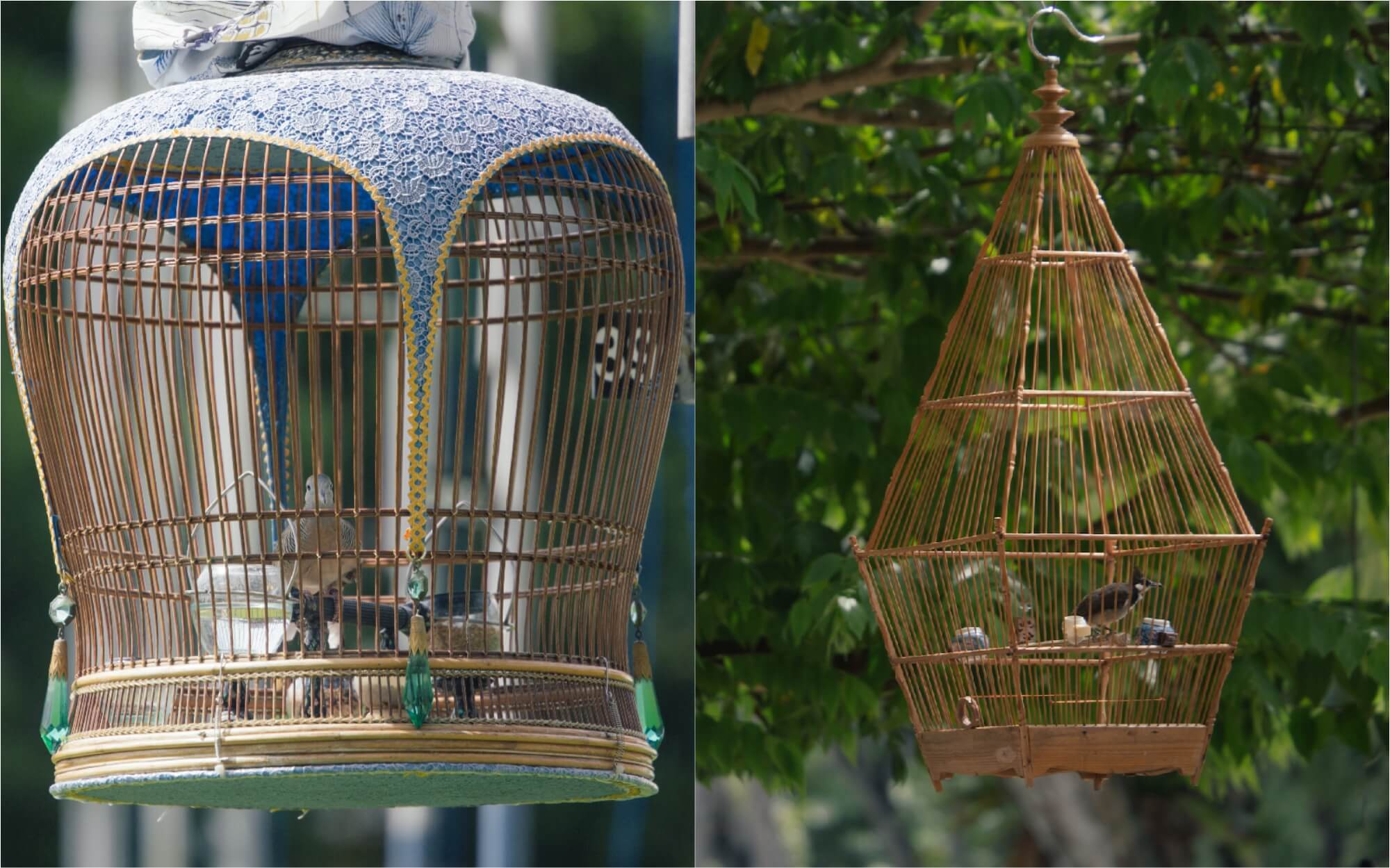
For Robin, however, who assures us it is illegal in Singapore to trap birds in the wild, the fact that they’re bred in captivity makes all the difference in the world.
“There’re always people who’ll say ‘Oh, birds should be free’ and all that. But I can bet you now that these birds are happy birds,” Robin insisted. “They get all kinds of food, vitamins, and medicine, and they get to lay eggs safely as compared to the wild. So they must be happy!”
True or not, few of the tourists and expats on hand to check out the competition seemed to share PETA’s concerns. One expat family from Germany told Coconuts Singapore it was a tradition that should be kept alive, before quickly melting into the crowd, perhaps annoyed their morning had been interrupted by an interview.
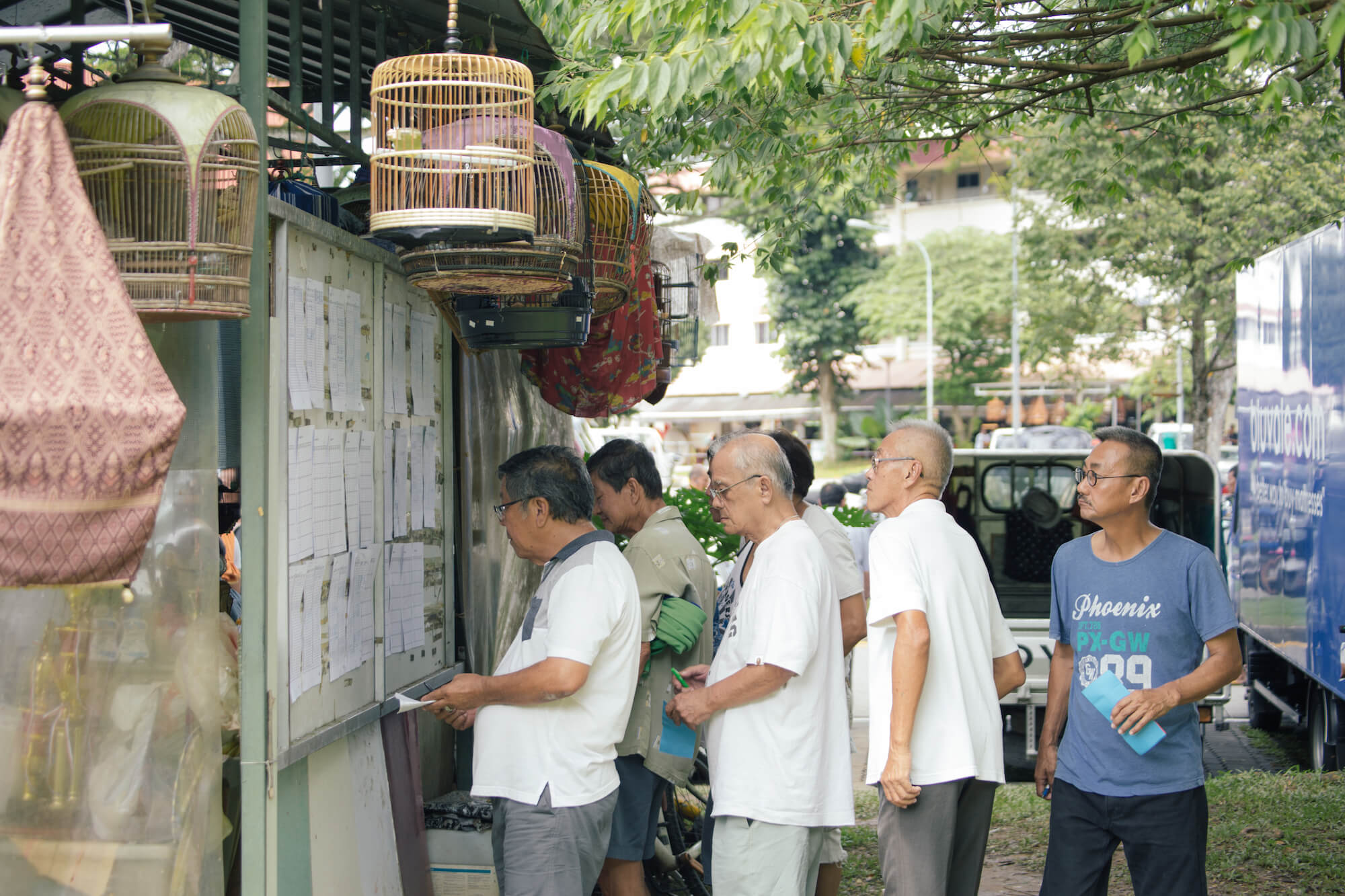
“It’s like all other animals, I guess,” offered a young French lady we spoke with. “If the birds are free but don’t have a proper place to grow, maybe it’s better for them to live in a big cage and have someone to take care of them. I have a pet dog in my house, so birds are the same thing.”
Identifying himself only as “Yen,” one of the proprietors of the nearby Bird Shop 159, was in perfect sync with Robin’s take on the ethics of birds as pets. He maintains that there’s a world of difference between wild birds and those that have been born and raised in captivity — pointing out that the latter live substantially longer than their undomesticated brethren.
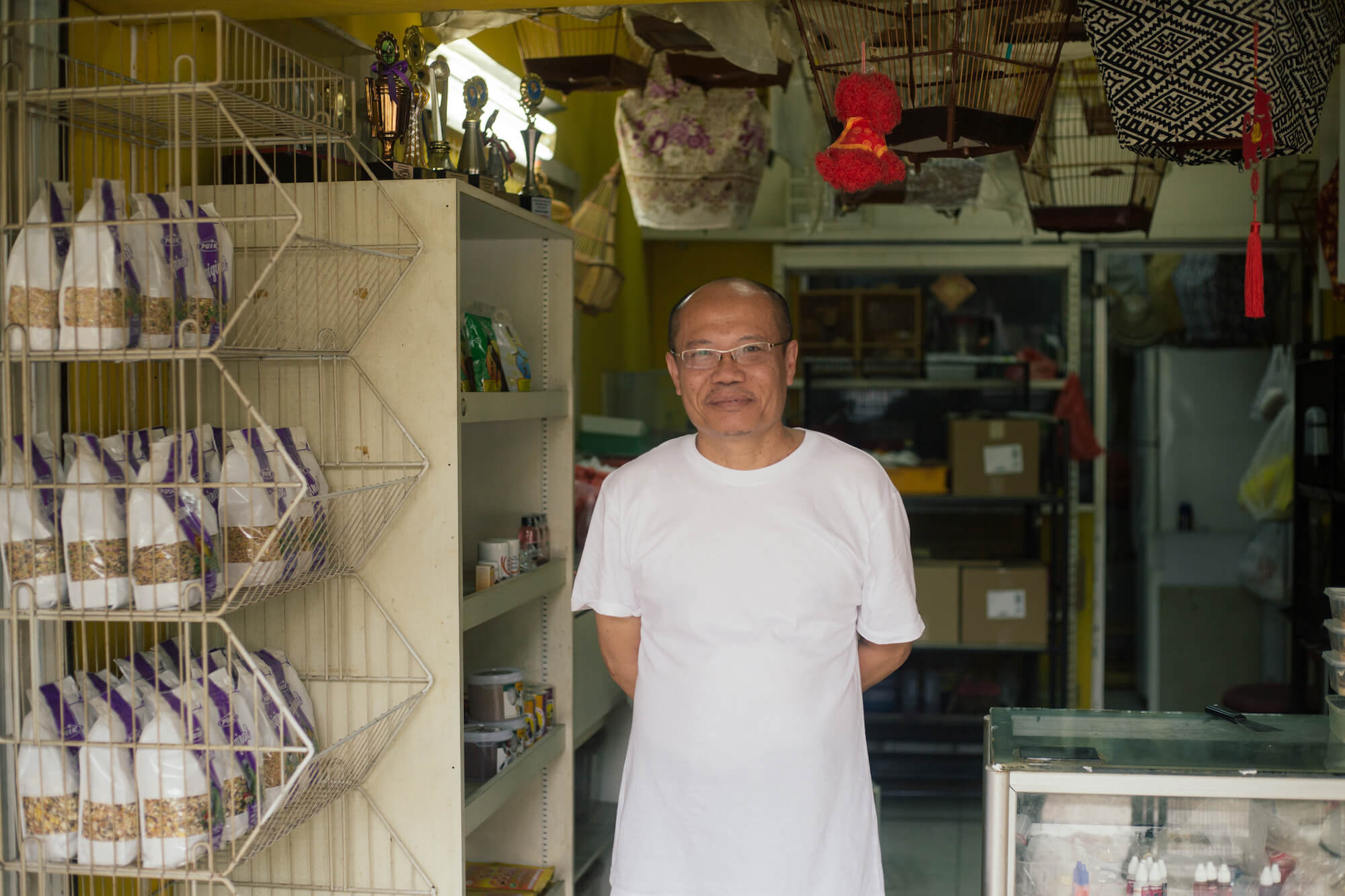
“We keep the birds under close watch and maintain them every day, keeping them healthy,” he said over a cacophony of red-whiskered bulbuls so intense we had to ask him to repeat himself.
Aside from his love of birds, there is, of course, his love of enterprise. Keeping the songbirds in top shape means greater fiscal rewards for a salesman/hobbyist like Yen, who estimated that a really fine specimen could net thousands of dollars.
“The price depends. Let’s say the bird is physically strong, can sing well, makes for a good display… people are willing to pay more for these birds that can really catch their attention,” he said.
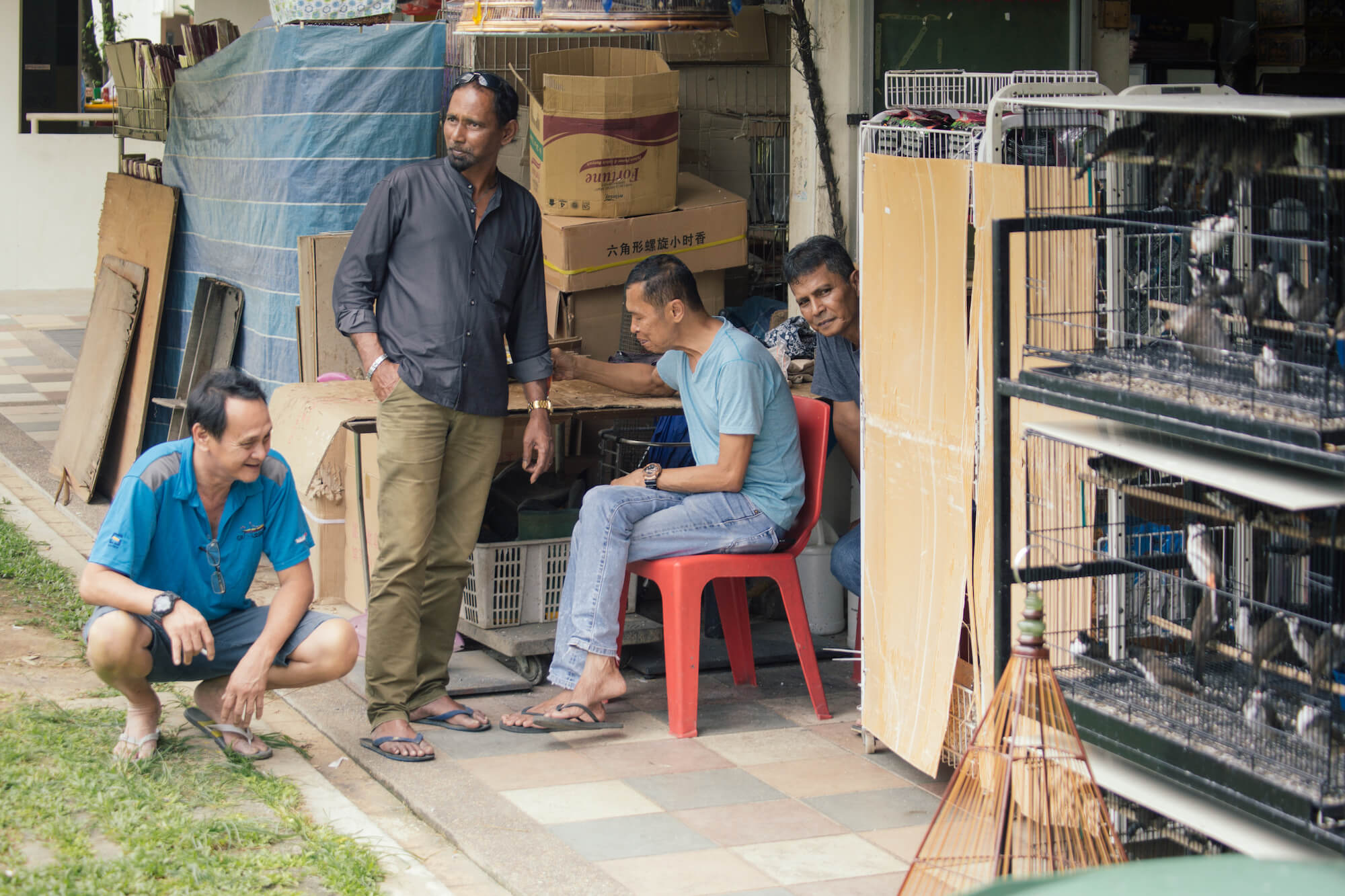
I asked if hobbyists ever decide to open the cages and simply let their birds fly into the ether. Not really, he said, insisting it would be cruel, as birds raised by humans simply wouldn’t know how to survive in the wilderness. Life outside their gilded cages would be a death sentence for all practical purposes, he said.
The moral justification of keeping birds as pets, meanwhile, is a simple one for Yen: companionship.
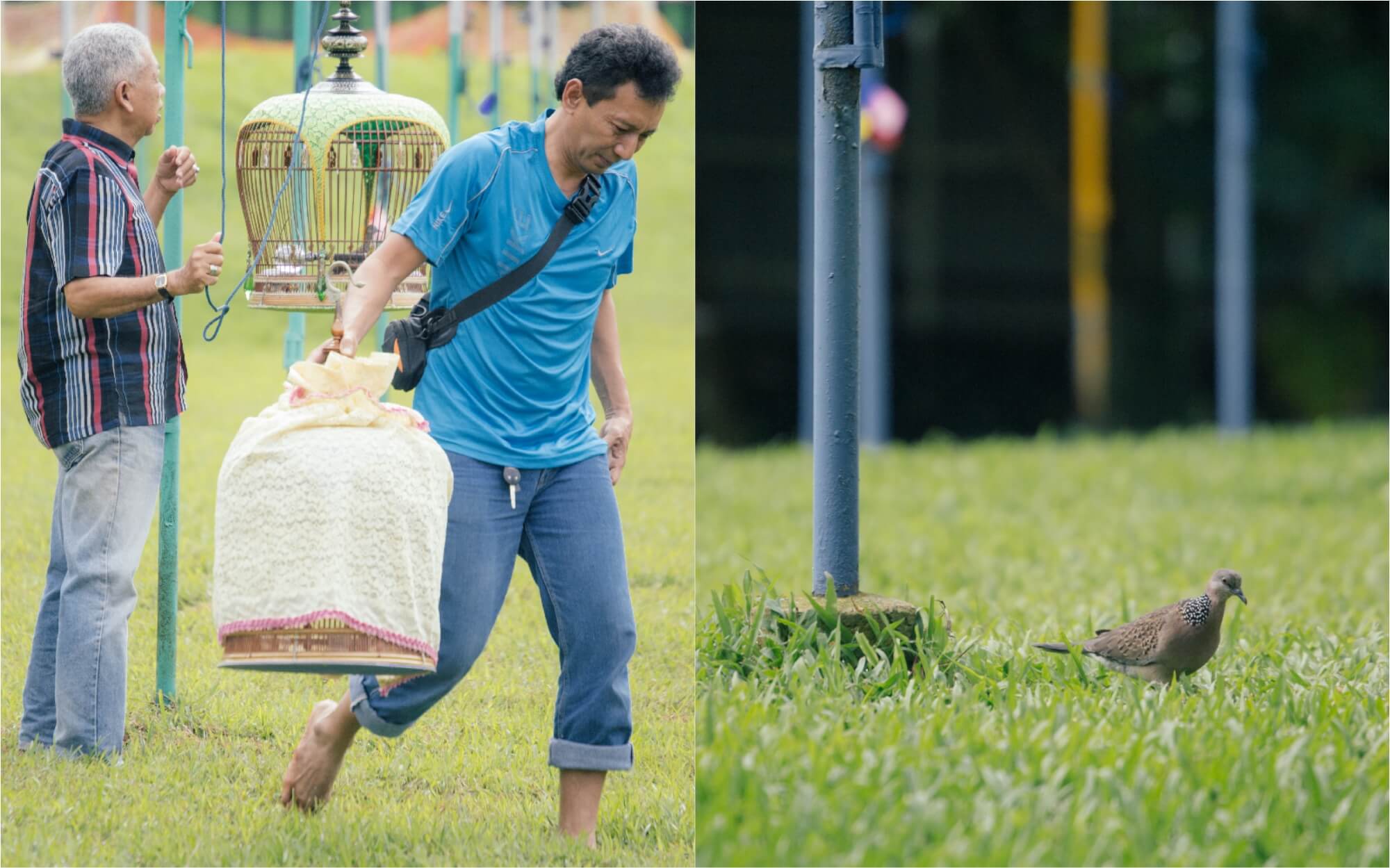
“It’s a good pastime for old people. Some of them stay alone in their houses, and some of them would feel lonely. So they keep a bird to keep them company. It’s a healthy activity,” he said.
Given recent studies connecting social isolation to the record number of suicide rates among Singapore’s aging population, he may have a point.

For elderly members of the Kebun Baru Birdsinging Club, the weekend gatherings amid the songs, chirps, and warbles of their fine-feathered friends provide a regular outlet for physical and social activity they may not readily find elsewhere.
And in a modern society moving at increasingly breakneck speed, the grounds form one of the last vestiges of the old kampung spirit, where people of various cultural backgrounds and standing get together and volunteer to keep their leisurely pursuit alive, and more importantly, enjoyable. Gotong royong at its best.

A little past noon that day, the merbok owners milled near the shelter, waiting for the competition results to be announced. Numbers were called out, and one by one, the champions rambled over to receive their assorted trophies, laughing as their friends busted their balls. Someone lucky managed to win not just one, but two bird cages from the lucky draw.
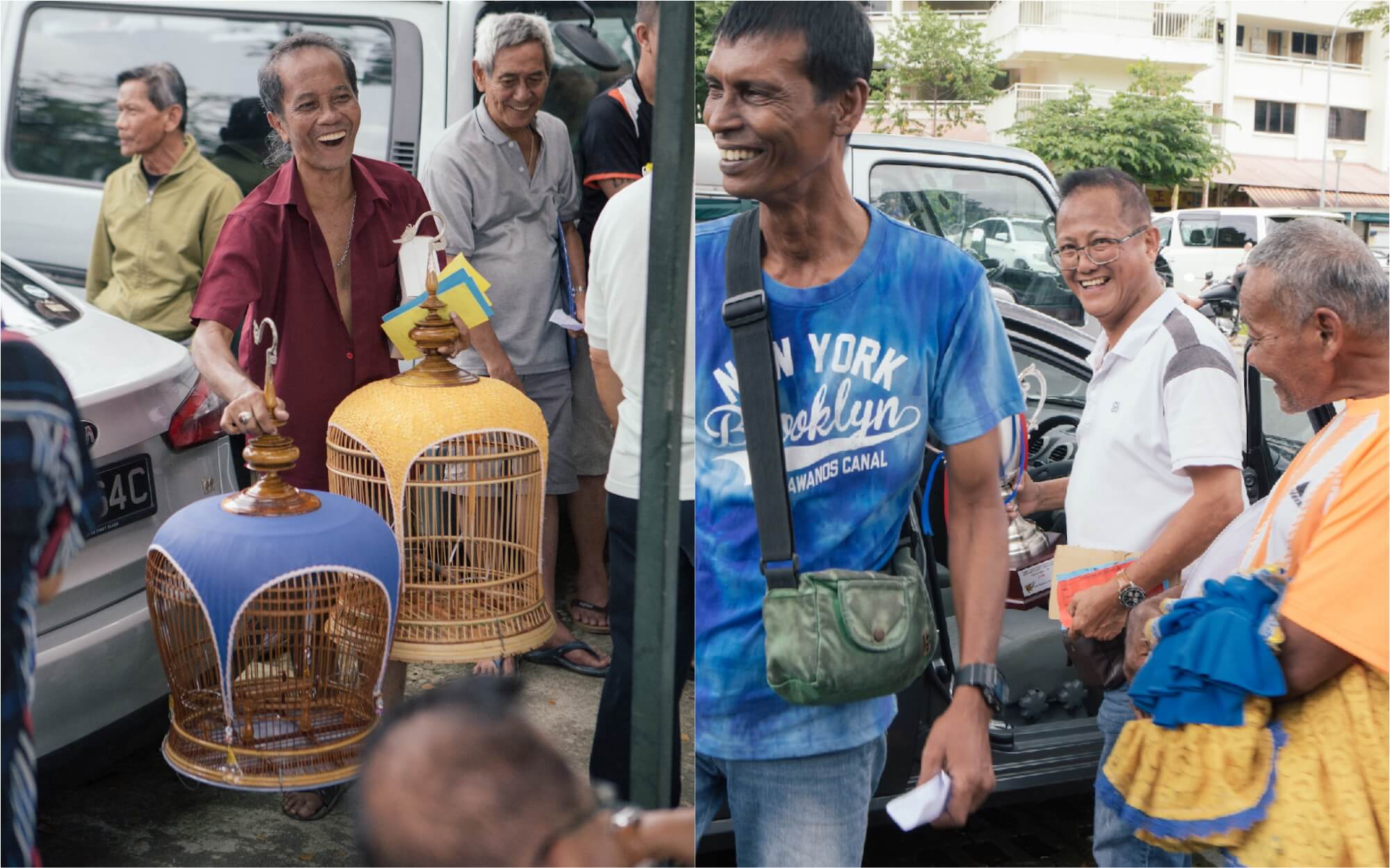
As for the birds, they get to rest under the shade of their cages, now covered with breathable fabric to shield them from the sun. An elderly Malay gentleman was heard saying that he can’t wait to give his pets the treats he just scored as a prize.
Everyone’s a winner in the end.
